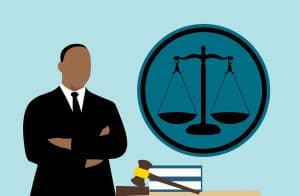
There is actually a lot that goes into the day-to-day tasks of criminal defense lawyers. It is not just one thing (like representing their clients in court) that these lawyers do, nah, they are there to help you out with whatever they can do in their power. And today, we are here to look at just that. So, let’s find out what does a criminal defense lawyer do, and how it is beneficial for their clients. Let’s keep it going.
Let’s See What Does A Criminal Defense Lawyer Do
Your First Chat and Case Review: Usually, the initial step is visiting a criminal defense attorney, which of course is pretty obvious to begin with. The lawyer will hear your side of the story, compile all the evidence, and get a hold of the charges against you during this first conference. This helps them decide how best to protect you. They will dissect the judicial system, the accusations, possible results, and best choices, that is, whether to accept a plea agreement or go to trial, you know?
Case Investigation: Following that initial encounter, your attorney investigates your case by going a bit in-depth. They will gather all relevant material, including police reports, witness accounts, and any physical evidence linked to the incident, and you must be able to help them out with that. This is done so that they can look for any holes in the prosecution’s case and gather proof either in favor of your innocence or at least question your guilt.
Legal Research and Strategy: Digging into legal research is a major component of a defense attorney’s work. Why and how? Well, they search legal statements, past cases, and legislation potentially relevant to your situation. This very study of your case clarifies the rules for them and enables them to choose arguments fit for a court. Down the line though, what they discover shapes their defensive plan.
Plea Bargaining: A criminal defense attorney will often negotiate a plea bargain with the prosecutor. Here you enter a guilty plea to a lower charge in return for a shorter term. Given that it generally leads to a lesser sentence and avoids the uncertainty of a trial, it can be a pretty wise action. Your attorney will walk over the advantages and drawbacks of accepting a plea agreement, thereby guiding your decision.
Court Representation: Should your matter proceed to trial, your attorney will be the one to stand by your side and defend you in the courtroom hearings. They could submit pre-trial motions, that is, attempts to dismiss some charges or suppress evidence gathered illegally, before the trial even begins. They offer your defense, cross-examine the prosecution’s witnesses, and argue to generate reasonable doubt regarding your guilt during the trial.
Appeals: Should you be found guilty and believe the trial produced errors, your attorney may be able to appeal. This is a demand for a review of the matter by a higher court to see if the trial was carried out correctly, you know?
Client Support: Criminal defense lawyers also offer emotional and pragmatic assistance all throughout the court procedure. They enable you to negotiate the complexity of the legal system, manage the stress and worry of confronting criminal charges, and grasp what to anticipate. They let you know how your case is progressing as well as any fresh developments.

